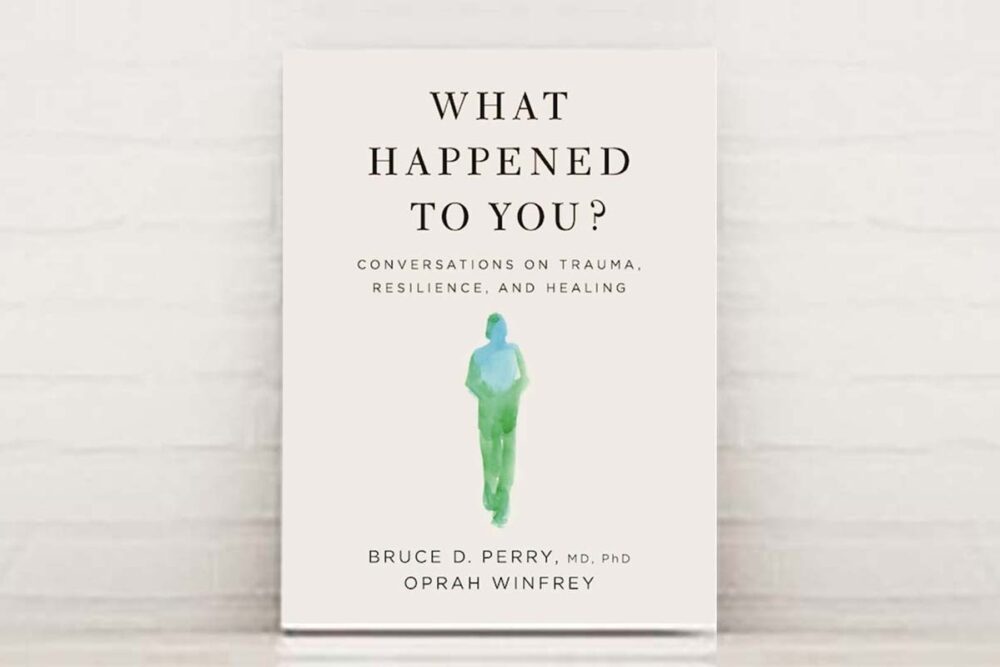
A silver lining in the devastation caused by COVID-19 has been our increased willingness to speak openly about mental health issues. As a result, trauma-informed care is experiencing its well- deserved moment in the spotlight.
In the midst of the chaos of April 2021, media personality Oprah Winfrey released “What happened to you: Conversations on trauma, resilience and healing”, co-authored with Dr. Bruce Perry. The book topped bestseller lists for months. It tells the story of how the experiences we have as children, particularly those that cause deep emotional scars, greatly impact brain development, our personalities, our behaviours and our outcomes in life.
“I believe that that question of, 'What happened to you?' is one of the keys to literally unlocking yourself. If we ask it collectively of ourselves and other people in our relationships, then it becomes a key to unlocking us”. Oprah (Winfrey & Perry, 2021).
The phrase and inspiration for the book's title was coined by Joe Foderaro, a founding member of the Sanctuary model (Sanctuary).
Sanctuary is a trauma-informed model, providing a structured approach for creating an organisational culture where resilience is the goal. Foderaro recalls the early days of the Sanctuary model and the success the clinical team experienced in recognising and responding to issues of trauma and adversity. He attributes this to a simple change of view:
“It's that we've changed our fundamental question from 'what's wrong with you?' to 'what happened to you?'” Joe Foderaro (Winfrey & Perry, 2021)
There is a seismic shift that takes place when we ask this question. It leads us to interrogate past adversity, trauma, dysregulation and a focus on support and safety, mending relationships, discovering new perspectives, building resilience and establishing peace with oneself and the world.
In a recent interview with Brene Brown on the subject (2021), Dr. Perry defines two types of trauma:
Capital “T” trauma, or the experiences that likely come to mind for most people when thinking about trauma: abuse, neglect, natural disaster and death.
Small “t” trauma, “You can have a loving family… but if you're continually in a school where you're feeling like you don't belong, you're not the right colour, you're not the right gender, you're not the right religious beliefs, whatever it is, if you are continually in the outgroup, it leads to the same emotional, physical, and social consequences as capital “T” trauma”. If prolonged enough, small “t” trauma, activates stress response systems and leads to the very same changes in the brain.
Both types of trauma can lead to lifelong impacts. On her Instagram page, Oprah says:
“if you've ever had labels like people pleaser, self-sabotager, disruptive, argumentative, checked out, can't hold a job, or bad at relationships used to describe you or your loved ones, this book is for you”. Oprah (Winfrey, 2021)
When we stop to think about it, most people carry some degree of trauma. Trauma can present itself in other subtle but profound traits, such as a lack of vulnerability, a lack of curiosity, a lack of regulation and a struggle to understand one's own behavioural patterns. We may see this play out in our relationships or workplaces. Dr. Perry attests that safety and security are not just physical needs, but real neurobiological need. This acknowledgement that safety is paramount and that safe social groups are the best way to help people recover from trauma forms the foundation of any trauma-informed organisational model.
Sanctuary was developed in the late 1980s and the practice of trauma-informed care in medical and social systems has been growing since; but it still only exists in small pockets. Trauma-informed care should not be limited to clinical settings; it has practical applications and can offer beneficial outcomes in most group environments, particularly those where people deal with stress and adversity.
"Any organisation that considers the person as a whole can expect to see measurable and improved wellbeing outcomes by working with trauma-informed practices and models."

So what exactly is a trauma-informed model? Trauma-informed models typically focus on learning by creating shared knowledge, values, language and practice, and will often include practical toolkits with simple theories, activities and concepts. These help individuals acknowledge that past adversity can have an impact on life, help them build resilience and regulate their stress response systems so they're more capable of dealing with challenges. This helps to create safe spaces, prioritise wellbeing and ultimately supports healthy communities.
Oprah shares a conversation she had with Dr. Perry shortly after opening a girls' school in Africa, her “aha” moment in understanding the power of trauma informed care (Brown, 2021):
“I've heard many teachers say, 'We're doing all of these things, and [the students] have this great opportunity to break the cycle of poverty. So what's wrong with them, that they're not responding? to which he replied 'People always say, what's wrong with these kids? when the real question should be, what happened to these kids?' And something just opened up in me, I thought, Wow. I had the biggest aha”.
Research and evidence shows that trauma-informed practices and models can help create the preconditions for improved teaching, learning and wellbeing. It's for this reason that trauma-informed care is increasingly being applied within educational environments.
Dr. Perry discusses applications for trauma-informed care when working with children (Brown, 2021):
“I'll be working with a family or a child, and I'll hear the story of what happened to them, and then our field wants to give them a DSM label, ADHD, conduct disorder, atypical bipolar disorder, and I basically say, You know what, I want to give them the diagnosis of what-do-you-expect disorder.” Dr. Perry
As with anything complex, there is a risk that trauma-informed care will be reduced to a buzz word - and lose much of its nuance, substance and meaning. However, Oprah Winfrey and Dr. Perry's book, “What happened to you” dives below the surface and provides an accessible introduction to a vast field that has existed for about 50 years. The book provides a glimpse of the keys to building a happier and healthier future.
Our takeaway: Experience tells us that when implemented professionally and practiced authentically, a trauma-informed care model can “help us transform not only our own lives, but also start to transform the lives of other people, and give us a better, deeper empathic connection with each other” (Brown, 2021).
References
Brown, B. (Host). (2021, May 5). Brené with Oprah Winfrey and Dr. Bruce D. Perry on Trauma, Resilience, and Healing. [Audio podcast episode]. In Unlocking Us with Brené Brown. Parcast Network. https://brenebrown.com/podcast/brene-with-oprah-winfrey-and-dr-bruce-d-perry-on-trauma-resilience-and-healing/
Winfrey, O. [@oprah]. Instagram, 28 April 2021, https://www.instagram.com/p/CONiOswBqTO/.
Winfrey, O. & Perry, B.D. (2021). What happened to you? Conversation on trauma, resilience, and healing. Flatiron Books.

